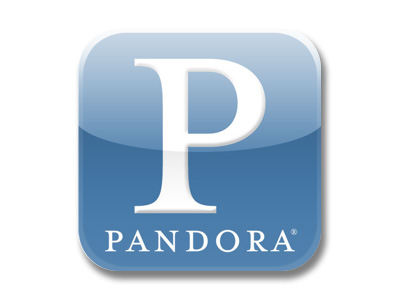 If you subscribe to our weekly newsletter, you’ve got access to Paul Riismandel’s summary of the latest salvos between musicians, radio stations, and Pandora over performance royalties. Paul notes that everything in this debate is contested, including how much musicians should be paid for each Pandora “spin” of a song, how to calculate those payments, and whether the amounts currently being forked over are fair.
If you subscribe to our weekly newsletter, you’ve got access to Paul Riismandel’s summary of the latest salvos between musicians, radio stations, and Pandora over performance royalties. Paul notes that everything in this debate is contested, including how much musicians should be paid for each Pandora “spin” of a song, how to calculate those payments, and whether the amounts currently being forked over are fair.
But at least Pandora hands over something, performance royalty-wise. The same cannot be said for the nation’s 14,800-or-so AM and FM radio stations, which pay zero while everyone grumbles about the alleged stinginess of Internet radio.
And so once more into the breach comes Representative Melvin Watt, one of North Carolina’s surviving Democrats. Watt is on the record as stating that “it is unfair to performers for radio stations to continue to make commercial use of music recorded by performers without working out a fair method of compensating performers for the use of their property.” He says that by August recess he’ll have submitted yet another bill requiring them to do so. This one doesn’t come up with any particular system for making broadcasters cough up the cash. Congress will just declare the obligation statutorily real, and lawyers for the stations and artists will presumably do the rest—and what fun that will be.
Shocker (not): the National Association of Broadcasters hates the proposal as much as this latest version’s ancestors, most notably the Performance Rights Act. The NAB supports the “Local Radio Freedom Act“—House Concurrent Resolution 16, which declares that Congress “should not impose any new performance fee, tax, royalty, or other charge relating to the public performance of sound recordings on a local radio station for broadcasting sound recordings over-the-air, or on any business for such public performance of sound recordings.”
143 representatives in the House support the resolution. The problem, of course, is that a lot of these radio stations are not local. I mean, sure, the transmitters are local, but nothing else is. Hardly any local voices, local content, or local music darken their broadcasts. You are lucky if the deejays bother to tell you the name of the song the station just played.
So here’s a compromise performance royalty proposal which requires radio stations to pay performance royalties, but gives true locally based stations a break. I call it the “The Local Radio and Performance Rights Act.”
Basically, the LRPRA would include the same core language as the PRA. It would alter Section 106 of title 17 of the US Code by removing phrase “digital” from subsection six. Thus an artist would have “exclusive rights” to a “copyrighted work publicly by means of an audio transmission”—integrating AM/FM radio into the payment structure. And the law would also include some kind of hierarchy for how much radio stations would have to pay, depending on their income level (the PRA proposed $5,000 per year for commercial stations earning $500,000 to $1,249,999 in annual revenue; less than $100,000 earners would contribute $500 per year).
But the law would exempt from any performance royalty payment schedule radio stations that the Federal Communications Commission classifies as “Local Radio Stations.” The bill would instruct the FCC to come up with a definition for this phrase via a public rule-making, and to include some of the same criteria the agency is using to pick candidates for Low Power FM licenses: the proximity of the license owner’s headquarters or main studio to the transmitter and how much local programming and music the station broadcasts.
The LRPRA would compensate artists and reward radio stations for really serving their communities, that is, for being really, truly local. Money for musicians; incentives for radio stations to stay or become more locally oriented. A win/win compromise. Hate it? Love it? Tell me why.


